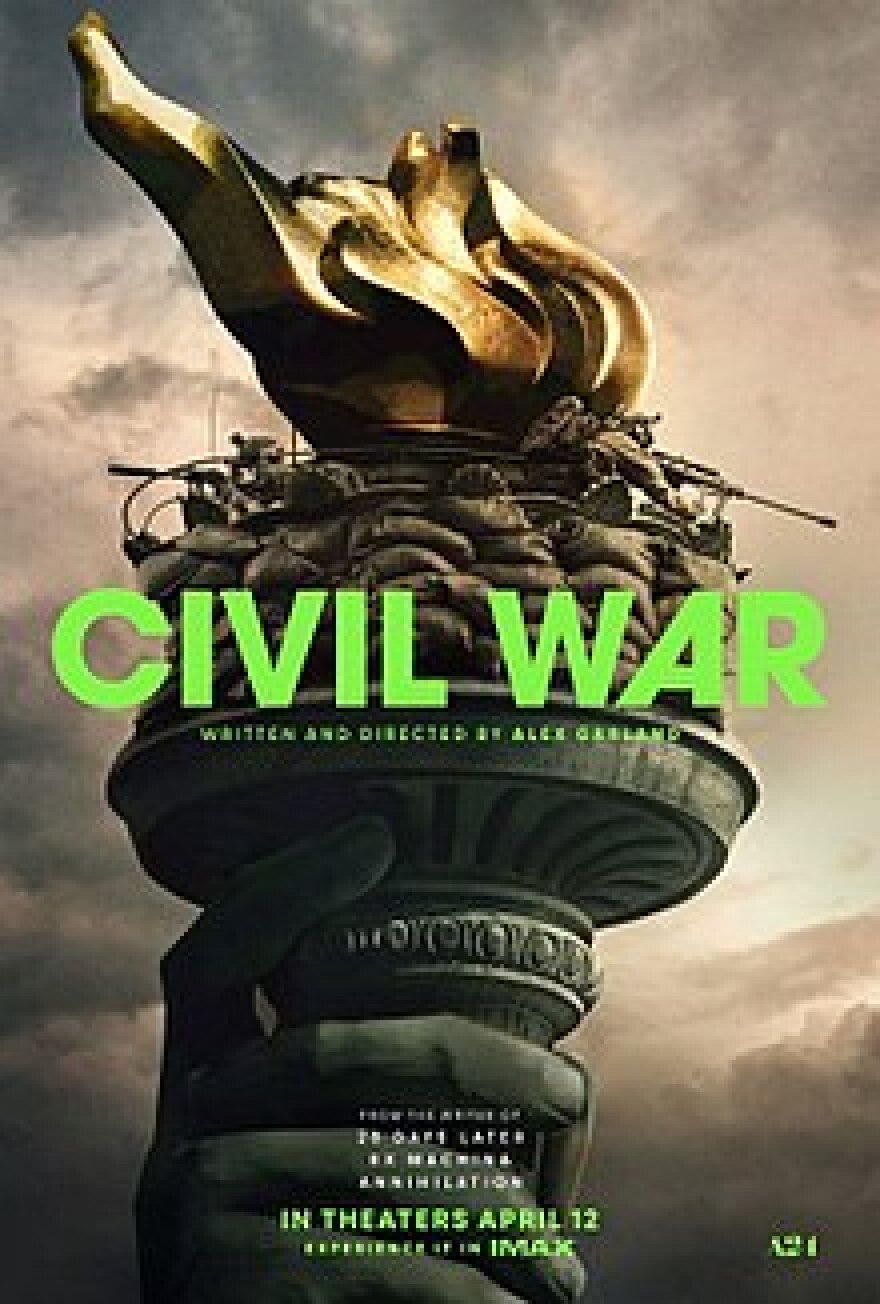With 2024 being a presidential election year, it seems so many TV news commentators are wringing their hands in anxious expectation for the results in November. With that context in mind, it made the new film Civil War feel spookily prescient. Following the speculative themes of select Margaret Atwood novels, Civil War presents a dystopian, future United States that is dangerous and destroyed with a large military faction attempting to remove a dictator president from the White House.
But instead of making this film about politics, it focuses on a group of journalists who drive from New York City to Washington, D.C. for a chance to interview the President. Showing the deadly consequences of political polarization, instead of the ideas behind it, keeps Civil War in an oddly vague position without explaining who's right and who's wrong or who's good and who's evil. Keeping this film in a political gray area is what will hopefully make it interesting to watch for people in all areas of our political landscape.
Don't let the previews fool you. This film is not an action-packed adventure (although it does have some intense scenes with machine gun fire, bombs, and tanks). Civil War works to be a more human story by showing the lengths reporters and photojournalists go to simply to do their job capturing the realities of war.
The editing is the star of this film, punctuating the fast-paced violence with silent moments of black and white snapshots freezing the action as it unfolds. Some time is also spent showing the psychological effects of this job on the group of main characters as they travel through an America covered in blood, deserted buildings, and marauders.
Traditional, enduring symbols of our capitalist culture are shown through a realistically unnerving lens, from a quiet shootout on an abandoned golf course to a refugee camp set up in a football stadium. The creation of such a fractured and violent country is amazingly successful in this film reminding me of past films Children of Men (2006) and The Road (2009). So many moments, both frightening and exhilarating, are coordinated and sustained so well. The climax of the film around, and inside, the White House had me clutching my arm rest.
But I wouldn't use the word flawless to describe Civil War. In the calmer moments when the four journalists get to know each other or talk shop about their work, the dialogue is written with a lethargy that fails to create believable bonds between characters and fails to connect with the audience.
I get these people are world weary and operating on shallow emotional resolves, but it makes the touching statements feel too lacking. In the moments meant to be emotionally resonant, the actors appear to be reciting words from a textbook on journalism (or a textbook on life). So the human element of Civil War mostly feels too dull or apathetic.
This film earned $26 million domestically in its opening weekend, more than any other film from the A24 studio. So this may be one of the memorable films we'll still be talking about at the end of the year.




